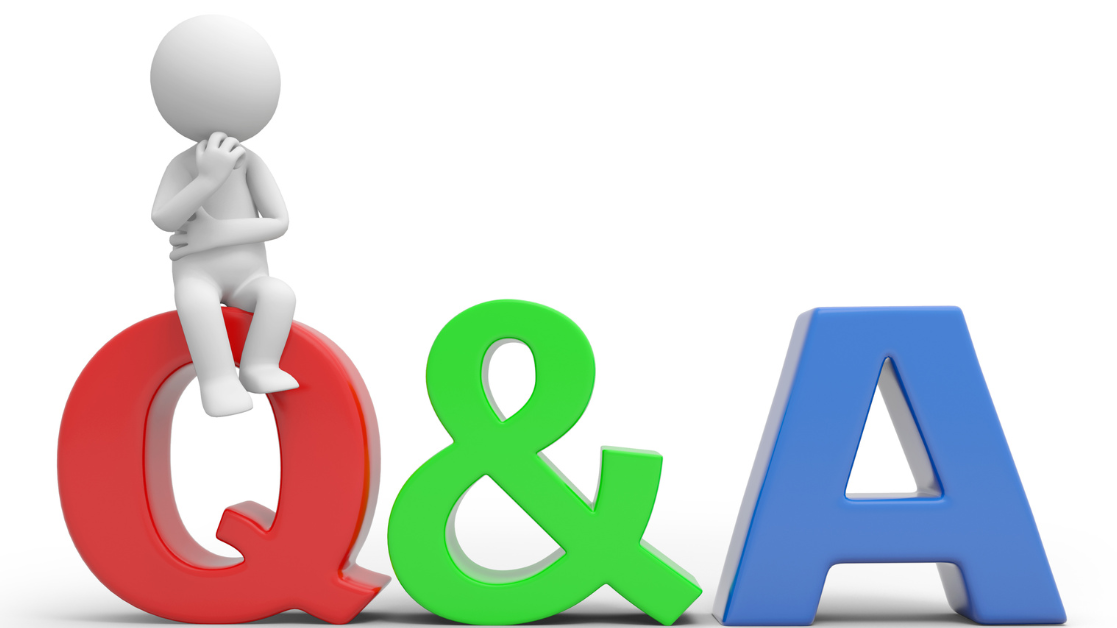40 Gluten Free Questions Answered

Celiac is an autoimmune disease In which a little amount of gluten consumption can cause damage to your small intestine and immune system. Some of the common symptoms of celiac disease are diarrhea, fatigue, weight loss, bloating, and anemia, which can lead to serious complications.
According to the current statistics, there are 1 in 133 people is celiac and currently, there is no cure for celiac disease.
1. Is ragi flour gluten-free?
Ragi is a rich source of good carbohydrates; gluten-free and especially suitable for people with gluten intolerance; it is also full of several essential amino acids.
2. Is Jowar gluten-free?
If you suffer from gluten intolerance, eat Jowar! It’s a gluten-free whole grain that can be an amazing choice for your diet! These delicious grains are nutrient-dense and have very high protein, iron, vitamins, and minerals levels.
3. Is bajra gluten-free?
In general, consuming bajra in moderation is considered safe for most people. Because it is a gluten-free grain, it can even affect people with celiac disease, as long as they are sure there is no cross-contamination with other gluten-containing grains.
4. Is rice gluten-free?
All-natural forms of rice—white, brown, or wild—are gluten-free. Natural rice is a great choice for people who are sensitive or allergic to gluten, a protein commonly found in wheat, barley, and rye, and for people with celiac disease, an autoimmune disease caused by gluten.
5. Is buckwheat gluten-free?
Despite the word “wheat” in its name, buckwheat is a naturally gluten-free food related to the rhubarb plant.
6. Is sourdough bread gluten-free?
Wheat yeast bread may contain less gluten than regular yeast bread, but it is not gluten-free. If you are on a gluten-free diet because of celiac disease, plain bread with yeast is not safe. Instead, buy bread made with gluten-free pea yeast, or invest a few days and make your own gluten-free sourdough.
7. Are millets gluten-free?
Yes, millet in its natural form is gluten-free. A variety of millet grains are used in cuisines around the world including flatbreads, porridge, drinks, pilafs, bread, and more.
8. Are oats gluten-free?
Pure oats are gluten-free and safe for most people with gluten intolerance.
However, oats are often contaminated with gluten because they can be processed in the same facility as grains that contain gluten, such as wheat, rye, and barley.
Studies show that most people with celiac disease or a wheat allergy can eat 2-3.5 ounces (50-100 grams) of plain oats daily without side effects.
9. Are potatoes gluten-free?
Potato is not a grain but a type of starchy vegetable. So, potatoes do not contain gluten.
10. Is amaranth gluten-free?
Amaranth is a naturally gluten-free, mineral-rich grain that has been harvested for thousands of years. However, as with all naturally occurring gluten-free grains, it is important to purchase amaranth that is labeled gluten-free.
11. Is cheese gluten-free?
Regular full-fat cheeses with no added flavors or ingredients usually don’t contain gluten.
Processed cheeses and cheeses labeled as low-salt, low-fat, or fat-free may contain gluten. If the cheese contains additives such as wheat flour or modified food flour, the cheese may also contain gluten.
12. Is dosa gluten-free?
Classic Dosas are naturally gluten-free. They are made with just rice and lentils (and fenugreek seeds), ground into a dough, and fermented. But don’t forget to check the type of measure when buying/ordering from a store or restaurant. There are many types of dosas like Maida Dosa, Wheat Sin, Rava Dosa, and several others that are not Gluten Free.
13. Is chickpea flour gluten-free?
Yes, chickpea flour is gluten-free. Chickpea flour, also known as besan, chickpea flour, or chickpea flour, is made from ground chickpeas, which is naturally gluten-free.
14. Is scaffold oats gluten-free?
Oats are naturally gluten-free, but cross-contamination with gluten is common. The best way to make sure the oats you buy contain gluten or not is just to check the label!
15. Is sorghum gluten-free
Sorghum is a gluten-free crop. Sorghum is rich in fiber and has a neutral taste, making it ideal for use in a variety of gluten-free foods. Sorghum is rich in phenolic compounds that can provide health benefits not found in other fruits, vegetables, and grains.
16. Is coconut flour gluten-free
Coconut flour is gluten-free, like wheat flour, which is a white or almost white flour commonly used in baking. Because it’s gluten-free, people on a gluten-free diet can substitute coconut flour in their baked goods recipes.
17. Are nuts gluten-free?
Yes. Natural nuts contain no gluten and will not affect those with gluten intolerance or celiac disease. However, flavored nuts and some nut processors may contain gluten, so it’s best to eat regular nuts and check with the manufacturer if you’re not sure
18. Is popcorn gluten-free?
Popcorn is naturally gluten-free and suitable for most people with gluten sensitivity or celiac disease. However, some people who are sensitive to gluten may also be sensitive to certain proteins in corn.
19. Are breadcrumbs gluten-free?
Breadcrumbs can be used in many dishes, but unfortunately, many types of bread are not gluten-free. However, you can still find gluten-free breadcrumbs both online and at your local grocery store!
20. Is bulgur gluten-free?
No, bulgur is not gluten free. Bulgur is a grain made from wheat. So, don’t eat bulgur if you have celiac disease, gluten sensitivity, or a wheat allergy.
21. Is durum gluten-free?
Durum wheat flour contains gluten. If you are allergic to wheat or gluten, you should avoid this product. Celiac disease and allergic reactions to wheat are confusing because wheat and gluten usually go hand in hand. The wheat reaction causes the typical allergic reaction,
22. Is einkorn gluten-free?
Einkorn is not gluten-free. Neither of these is safe if you have celiac disease or non-celiac gluten sensitivity. Even if your favorite health food store puts a “gluten-free” seal on bread baked with einkorn, they’re wrong.
23. Are oats gluten-free?
Pure oats are gluten-free and safe for most people with gluten intolerance.
However, oats are often contaminated with gluten because they can be processed in the same facility as grains that contain gluten, such as wheat, rye, and barley.
24. Is rye gluten-free?
Rye is closely related to wheat and barley, which contain gluten as well as gluten.
25. Is gram flour gluten-free?
No, graham flour is not gluten-free. Graham flour is made from wheat and therefore contains gluten. Graham also opposed eating white bread, which he thought was unhealthy bread because it uses only one part of the wheat grain.
26. Is wheat bran gluten-free?
Wheat bran is not gluten-free. Wheat is a grain that contains gluten. Wheat bran is the outermost layer of the wheat grain and also contains gluten.
27. Is tritical flour gluten-free?
Like wheat, triticale contains gluten, so it is not suitable for a gluten-free diet and can be used alone for baking bread.
28. Is farina gluten-free?
Farina is popular warm granola, usually made with semolina. Semolina is the large, hard grain that remains after the flour is milled.
Therefore (since wheat is the most popular gluten-containing grain), Farina is definitely not gluten-free. If you have celiac disease or non-celiac gluten sensitivity, be sure to avoid Farin. If that’s frustrating, read on to find out what else to avoid and what to replace if you really like your Farina.
29. Is soy sauce gluten-free?
Regular soy sauce is not gluten-free. Wheat is a staple in soy sauce, which surprises many people new to the gluten-free diet. There are several gluten-free soy sauce options that use rice instead of wheat. If you can’t find gluten-free soy sauce, tamari is a good gluten-free substitute. As always, be sure to read the ingredient label before you buy and eat.
30. Is soy milk gluten-free?
Most soy milk is gluten-free. Because different manufacturers may use flavors and preservatives other than soy, check the ingredient label before using soy milk.
31. Is meat gluten-free?
Yes, meat is naturally gluten-free. Typically, fresh meats, including beef, poultry (chicken, turkey, etc.), rabbit, lamb, and fish/seafood are all gluten-free.
However, be careful with breaded or floured meats, which usually contain wheat and therefore gluten. For meats that are marinated or topped with sauces and broth, be sure to read the labels and check for added ingredients. Soy and teriyaki sauces usually contain gluten, so meat marinated in these sauces is usually dangerous for people with celiac disease or non-celiac gluten sensitivity.
32. Is almond flour gluten-free?
Yes, pure almond flour is 100% gluten-free. Almond flour, sometimes called almond flour, is made from finely ground almonds (flaked or not), which are naturally gluten-free.
Flour made from shelled almonds is darker in color and is perfect for rustic bread or baked goods that are also dark in colors, such as chocolate desserts or gingerbread. Peeled almond flour is made from boiled almonds and is ivory in color. Can be used in light cakes and muffins.
33. Is seitan gluten-free?
Seitan, another name for wheat gluten, is not gluten-free. Vegetarians and vegans with celiac disease should not intake seitan.
34. Is freekeh gluten-free?
No, Freekeh is not gluten-free.
Freekeh, also known as farik, is an “ancient grain” made from green durum wheat. Because freekeh is extracted from wheat grains, it contains gluten and is not safe for consumption by people with celiac disease or non-celiac gluten sensitivity.
35. Is vinegar gluten-free?
Vinegar contains no gluten by nature however, Seasoned and processed vinegar can contain gluten, most often in the form of malt, so the ingredient list should be read carefully. If wheat protein is in the vinegar, it will be listed on the label.
You can check the list of different types of vinegar on the market which are safe and gluten-free and you can buy them.
36. Does eggs have gluten?
Eggs are naturally gluten-free and you can easily consume them in your breakfast meal.
37. Does chocolate have gluten?
Pure dark chocolates that are made of roasted cocoa beans are naturally gluten-free. However, people don’t like to consume such chocolates due to their bitter taste.
38. Does regular oatmeal have gluten?
Oats are naturally gluten-free but as they come in contact with gluten-containing grains such as wheat, barley, rye, etc. in storage or while transporting it can result in cross-contamination.
39. Can celiacs eat eggs?
Yes, as eggs are naturally gluten-free you can easily consume eggs in your breakfast.
40. What does “may contain traces of gluten” mean?
Foods that claim that they may have traces of gluten are the ones that might have been cross-contaminated. So, consumption of such foods is risky.
 MY JOURNEY
MY JOURNEY About Me
About Me Early life
Early life Diagnosis
Diagnosis CELIAC DISEASE
CELIAC DISEASE Symptoms & Diagnosis
Symptoms & Diagnosis Treatment & Follow Up
Treatment & Follow Up GLUTEN - FREE LIVING
GLUTEN - FREE LIVING At Home
At Home At School
At School At Social Events
At Social Events
 Grocery Shopping
Grocery Shopping COMMUNITY OUTREACH
COMMUNITY OUTREACH Gluten Free Meetup
Gluten Free Meetup Workshops
Workshops Webinars
Webinars COVID-19 Camps By Gluten Free Jio
COVID-19 Camps By Gluten Free Jio  Mid Day Meal
Mid Day Meal Beyond Celiac
Beyond Celiac Real Stories of Celiac
Real Stories of Celiac RESOURCES
RESOURCES Restaurant Dining Cards
Restaurant Dining Cards Recipes
Recipes Gluten Free eBook
Gluten Free eBook Gluten Free Jio App
Gluten Free Jio App RECOGNITION
RECOGNITION TRAVEL DIARY
TRAVEL DIARY



